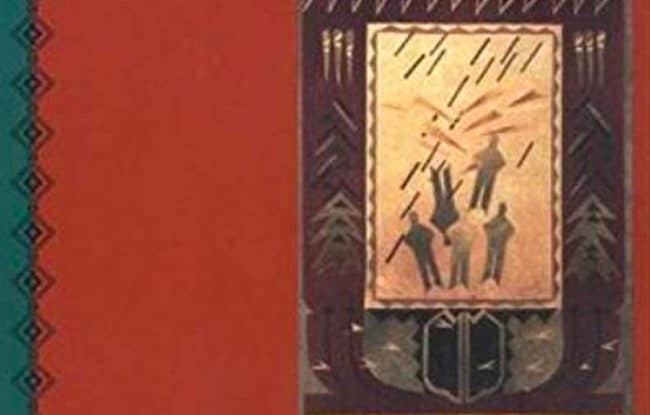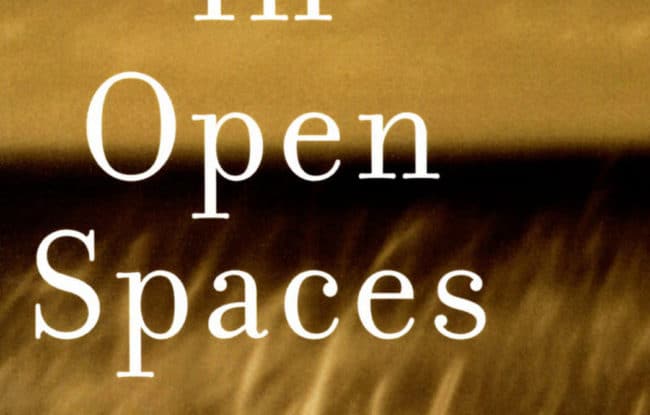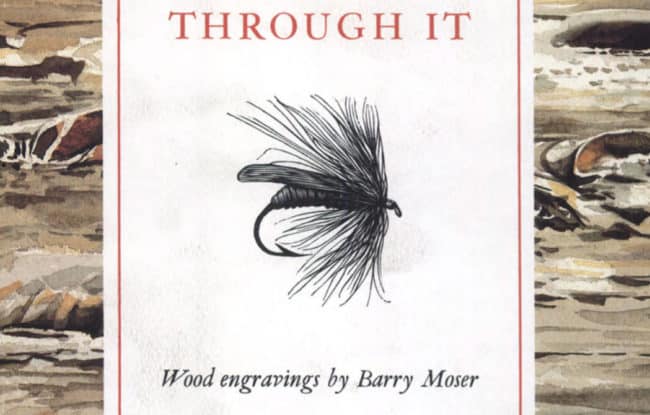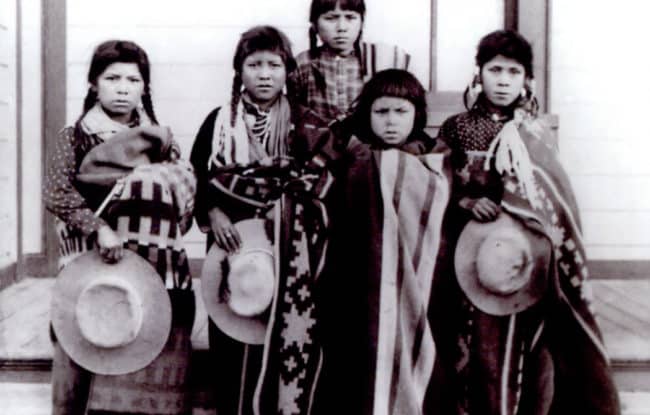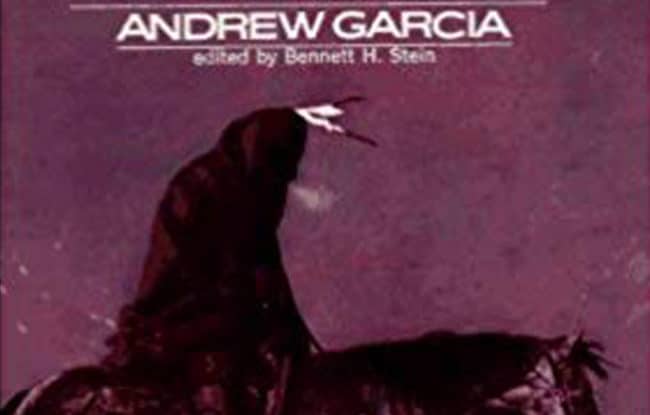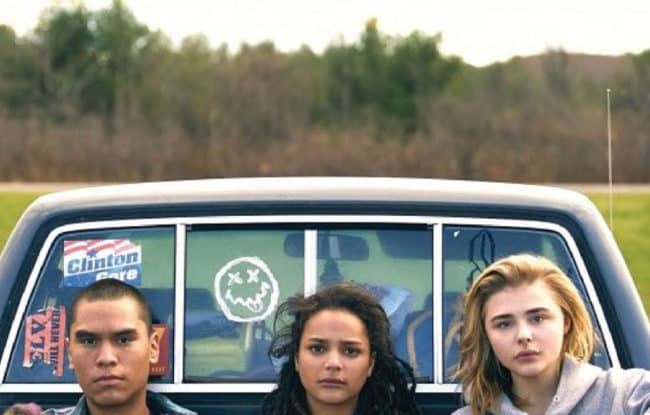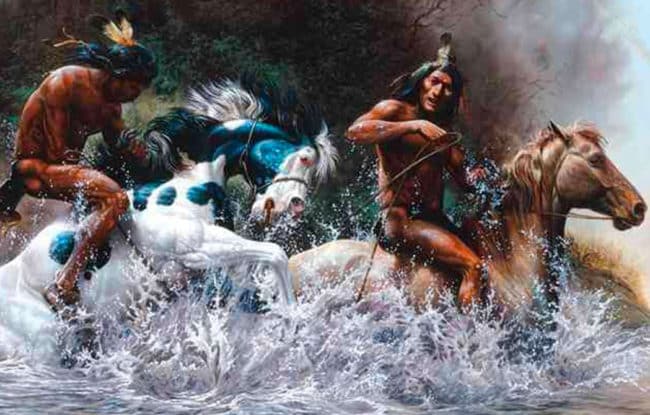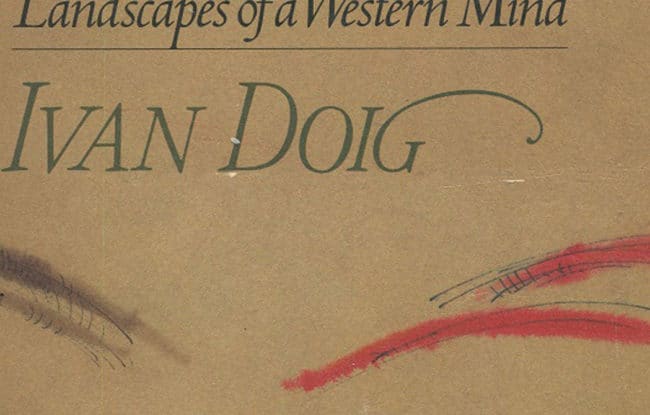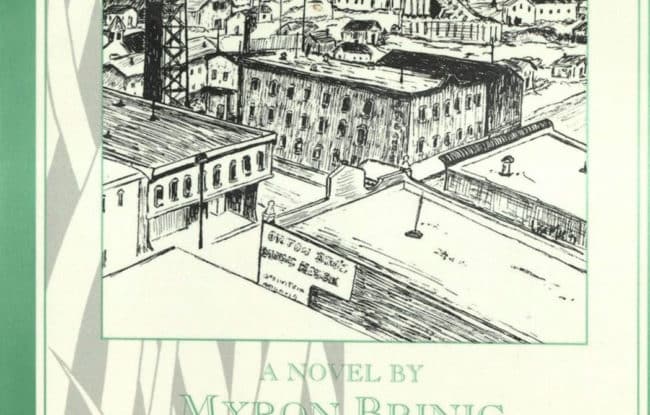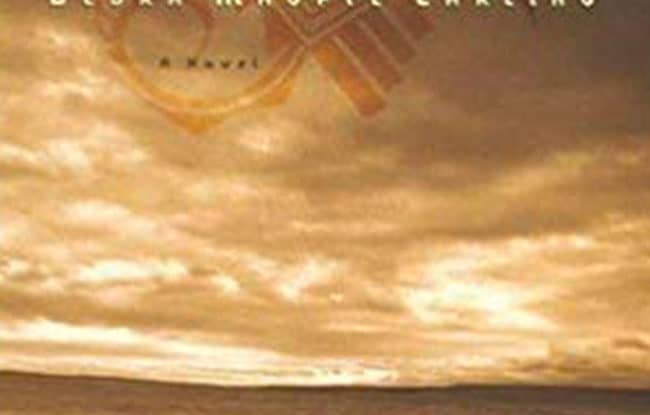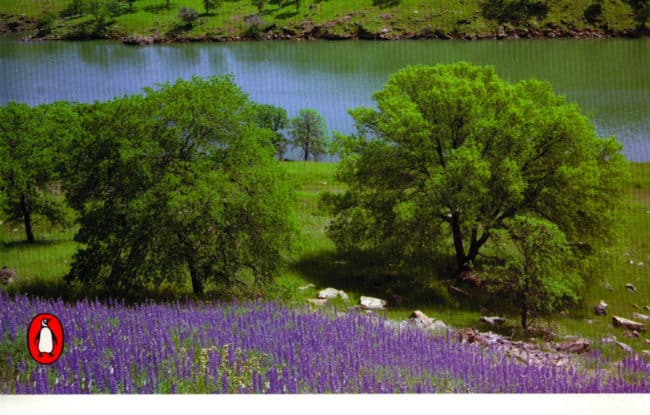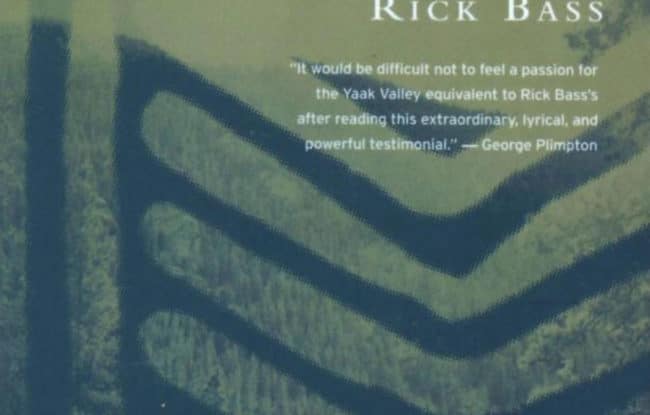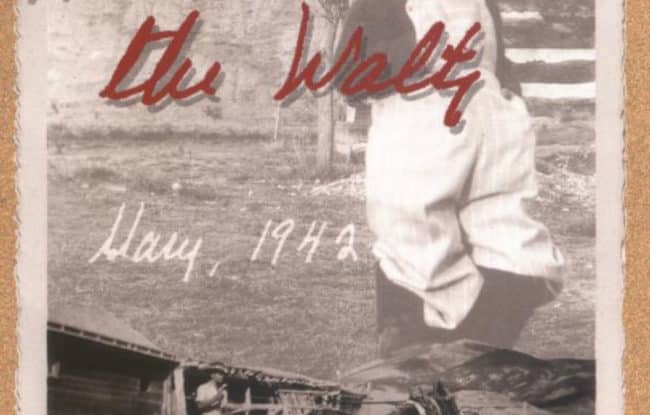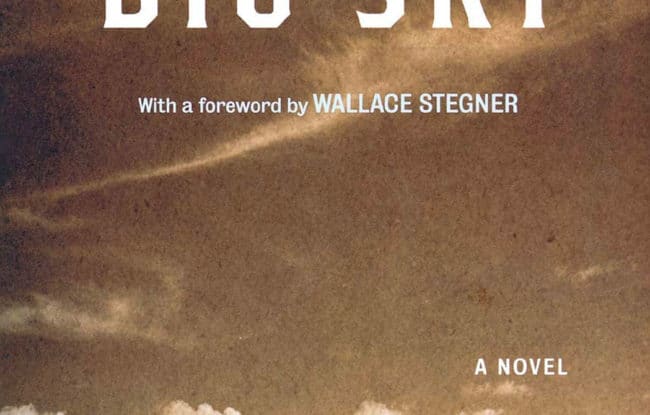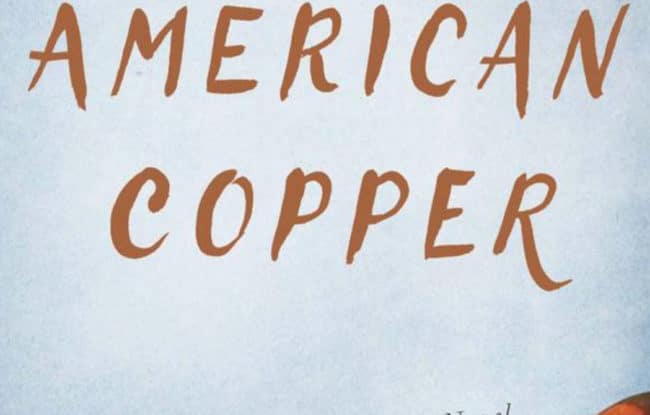Explore settings in favorite Montana literature using the interactive map below.
Use the filter bar to see specific book locations.
Montana Authors Project
Welcome to the Montana Authors Project




They were riding through the big-leaf and spear-leaf trees along the Milk River. A few winters ago, it had been good hunting for the long-legs and wags-his-tails, and, before that, bighorns, real-lions and sticky-mouths. With the settling of the Napikwans, these animals had moved into the Backbone, which loomed above the riders to the west. Rides-at-the-door looked over at Ear Mountain, and, below it, Danger Butte. (270)…
Carter County, my county, forms the far southeastern corner [of Montana], sprawling like an old wool blanket spread carelessly across the ground, complete with ridges, wrinkles, hollows, and an occasional hole. The closest thing Carter County can claim to a mountain is the buttes—a series of sandstone flattops that look like the beginning of mountains, as though some ambitious fellow came along and started building a mountain ridge, but didn't have the energy to finish it. Finger Buttes cross the county at an angle, south to northwest, like giant stones laid out to keep the wind from blowing the blanket away. (2)…
Early next morning Paul picked me up in Wolf Creek, and we drove across Rogers Pass where the thermometer is that stuck at three-tenths of a degree short of seventy below. As usual, especially if it were early in the morning, we sat silently respectful until we passed the big Divide, but started talking the moment we thought we were draining into another ocean. Paul nearly always had a story to tell in which he was the leading character but not the hero. (13)…
The center of life was the mission church.... Plain as it was, the hovels which were set against it gave it an air of grandeur.... Each cabin faced the church. Each door—there were no windows—gave a full view of God's tall house and the cropped poplar trees around it. The newcomers saw only the confusion. (35)…
The novelist always manages to cover up the trail on the Indian or villains who are pursuing the hero with the red-headed maiden in his arms on horseback. I never had such luck. They could always find my trail dead easy and run the hell out of me.... We all like to see the hero and fair damsel make their get-away from the villain and for her to live happily with the hero.... I am sorry to have to dispell the beautiful hallucination and tell, in most cases, that is B.S. (49)…
On the fifth day out they came to the head of the Little Prickly Pear where it empties into the Big River. A short distance to the southwest lay the holdings of Malcolm Clark. Yellow Kidney had told how, before turning to ranching, Clark had been a trader among the Pikunis and had married Cutting-off-head Woman. The Indians called him Four Bears and the chiefs respected him, but he was also known for his ruthless ways and bad temper. Now he raised whitehorns and had a big say with the Napikwan chiefs. (15)…
Irene and I had done up the fair before—we'd done it up big.... In years before, we thought we owned the fair. But that August we haunted the midway like ghosts—stopping in front of the Tilt-A-Whirl, then the fishbowl game, watching like we'd already seen everything there was to see but couldn't quite pull ourselves away.... Everything was painted in ringing noises and flashing lights and shouting and screaming, crazy laughter, little kids crying, the smell of popcorn and fry bread and cotton candy thick in the air, but it all just sort of floated around me like smoke. (43)…
As the heat mirages on the river in front of me danced with and through each other, I could feel patterns from my own life joining with them. It was here, while waiting for my brother, that I started this story, although, of course, at the time I did not know that stories of life are often more like rivers than books. But I knew a story had begun, perhaps long ago near the sound of water. And I sensed that ahead I would meet something that would never erode so there would be a sharp turn, deep circles, a deposit, and quietness. (63)…
At the creek's edge he sat on an old log and listened to the water which, though night had come, was still awake, swirling in eddies, slapping upon stones.... There were odors of the thimbleberry, of wet gravel, and, he thought, of fish, but that was imagination. It was a peculiar thing how images of such things were nothing that could be touched and yet they had strength and substance. He had come a thousand miles because of their pull upon him.... (16)…
We rode off on our way to the cache on the other side of the Musselshell River. Everything had come out all right and I was soon in a joyful mood, an unusual thing with me for some time. As we rambled on I kept getting all the more joyful and began to think that I was a combined lark and nightingale. I started to liven up the surrounding country with my melody. Beaver Tom snapped at me, "What the hell is eating you anyway, do you want to bring all the Injuns in the country on us?" Nothing could insult me, for was not the wind whispering sweet music in my ears? (97)…
Clouds lift up Ruby Valley As the medicine man unveils Feelings of illusion. The poet paints with wails Of inner heart commotion, Life is a song of feelings.…
Scanlan Lake was a man-made sort of lake-pond that was Miles City's best stab at a municipal pool. It had two wooden docks set fifty yards apart, which was a regulation distance according to federation swim rules.... Every May the city released a flow tube and filled the then-empty lakebed with diverted water from the Yellowstone River—baby catfish, flukes, minnows, snakes, and tiny iridescent snails that fed on duck poop and caused the red rash of bumps known as swimmer's itch, the rash that covered the backs of my legs and burned, especially in the soft skin behind my knees. (12)…
Undoubtedly, our differences would not have seemed so great if we had not been such a close family. Painted on one side of our Sunday school wall were the words, God Is Love. We always assumed that these three words were spoken directly to the four of us in our family and had no reference to the world outside, which my brother and I soon discovered was full of bastards, the number increasing rapidly the farther one gets from Missoula, Montana. (7)…
[Max] settled down and began to build his ranch. And on that he labored strenuously. In the work of those early years he rarely had anyone to help. It was not laziness, and it was not romanticism. While it was true that the old life was much cleaner than the present existence, it was still hard for a white man to stomach. (42)…
It was in the fall of 1878 before the Priest came to the Cree buffalo camp on the Musselshell River, nearly one day's ride from the Pend d'Oreille camp...his name was Father Landre. He followed the Cree buffalo camps in Canada and lived in the tepees with them like an Injun...and said Mass and preached to them in the Cree language. His church was a large one, the vaults of heaven and generally on a creek bank under a tree. His altar stood there, the tail end of a Red River cart. It was some sight to see, on the banks of the Musselshell, in that Injun camp, on that day when In-who-lise and I were married. (260)…
Just to see The awe of the mountains Is good enough, A view of Crazy Mountains. Just to be is good enough. You see, this was A free country Before America ever was. Under the laws Of nature The mountains, our Mother.…
The ride took maybe a minute and a half down Main Street (including the stop sign and two stop lights): past Kip's Minute Market, which had Wilcoxin's hardpack ice cream and served two scoops almost too big for the cones; past the funeral homes, which stood kitty-corner from one another; through the underpass beneath the train tracks; past the banks where they gave us Dum-Dum Pops when our parents deposited paychecks, the library, the movie theater, a strip of bars, a park—these places the stuff of all small towns, I guess, but they were our places, and back then I liked knowing that. (5)…
About then we drove into the big tamaracks where our cabin is. There suddenly it was cool. The tamaracks are from eight to twelve hundred years old, their age and height keeping the heat out. We went swimming even before we unloaded the car. (52)…
As we passed the accident crosses nearer and nearer to our Reservation lease, like silvered warnings along a route of pilgrimage, the landscape emptied and emptied until there was no hint of flowing water or tree cover. Then sometime beyond noon on the third day, a sudden earth-splitting trench of both: the Two Medicine, a middling, green-banked river which somehow had found itself a gorge worthy of a cataract. (203-204)…
After four days of a rough and tumble trip for the wagons, we came out on the Bozeman trail on the Yellowstone River. Following the Bozeman trail up the Yellowstone River, I saw some changes since coming by a year ago. There were two or three new ranches above the mouth of the Big Timber on the Yellowstone River, and we met two parties from the Gallatin Valley looking around for a good range to run cattle. (266)…
We followed the sun west for hours, climbing mountain passes, crossing river after river, until we spanned the final bridge into Missoula. Even the air smelled different—the rotten egg stench of pulp mills…or, as often, the clean, rich redolence of the Clark Fork river. Missoula lives under a canopy of trees, and I found myself half ducking the first few weeks, conscious of feeling something always hovering overhead, turning to look up and up through the limbs of giant firs, sprawling maples and oaks. (295)…
On a flat top along the Stillwater Toward where it is winter all of the time, From the Bear Tooth Mountains, a mighty buffalo bull is slowing toward death, Many arrows are sticking out of his massive body, Stands waiting to charge as he sticks his Bloody tongue up his nostrils, waves his tail, straight up.…
There were nine empty stories of exam rooms, operating rooms, extended care rooms, and offices, plus a cafeteria and kitchen still glinting with stainless-steel counters and shelves, all connected by a labyrinth of seemingly endless hallways... But it was the older section of the hospital...that became the ultimate destination for dare fulfillment. It was creepy enough from the outside, the Spanish-style architecture crumbling from age, broken windows, a weathered stone cross at the top, all the classic dark-and-stormy-night elements. Any teenager could tell you that a place like that just had to be worse on the inside. (77)…
Mongrels have gone home. We slop toward the car. Every year a few less live who know the Salish hymns. The mud is deeper. Snow has turned to rain. We were renegade when God had gills. We never change.…
Dupuyer, unlike Ringling or White Sulphur Springs, seemed never to have had the least hesitation about its livelihood since the first wagon master wearily overnighted on the site sometime in the 1870's…. The country rimming it to the west was found to be fine for sheep, and a local rancher named Oliver Goldsmith Cooper became president of the potent Montana Wool Growers Association. Before the turn of the century, a quarter million pounds of fleece were being shipped from the Dupuyer Creek ranches each year. (186-187)…
In this land lived a part of the Nez Perce tribe called by the other Nez Perces Wal-lam-wat-kin. Those Injuns had lived in this valley as far back as they knew, but in time the white men seen this land and wanted it. In this valley the grass on the hills was never known to fail stock in the winter in the memory of Injun or white man....Those Injuns did not want to leave this land, but the white men started to come in small numbers at first and later more and more of them....General Howard was ordered to remove these Injuns out of the Wallowa Valley and force them on the Lapwai reservation. (205)…
We dated country style. On winter weekends, he'd pick me up in the battered four-wheel-drive and we'd spotlight for rabbits, driving for hours over the rough frozen prairie with a flask of whiskey between us. In summer, we took the shale ridge road overlooking the Missouri River, edging the truck around washouts and through creek crossings, stopping to explore long-abandoned homesteads. (196)…
To say Some Crows are riding upside down And falling into money Where the aborted live In the policies of the Bureau of Indian Affairs. That's why the Maker showed the water beings At the edge of the Big Horn Mountains As the long otter lives on in white clouds Trickling down the veins Next to the star that is light.…
Back then Big Timber still had the only water park in Montana, and it sat right alongside the interstate. When we passed, I craned to see the strange toothpaste-green looping slides as they towered out of a field house cement vats of too-blue water. The place was packed.... Everything was heightened the way it always is when summer is slipping away to fall, and you're younger than eighteen, and all you can do is suck your cherry Icee and let the chlorine sting your nose, all the way up into the pockets behind your eyes, and snap your towel at the pretty girl with the sunburn, and hope to do it all again come June. (259)…
You could love here, not the lovely goat in plexiglass nor the elk shot in the middle of a joke, but honest drunks, crossed swords above the bar, three men hung in the bad painting, others riding off on the phony green horizon. Hugo, Richard. Selected Poems. New York: W.W. Norton and Company, 1979.…
When Dad hired on at the Camas, it had been with the contract that when summer came he would thread through the disorder of the place and get the ranch's rich hay crop harvested. Somehow a crew had to be held together through the months of mowing and raking and bucking and stacking of 150 butts of hay, some 1400 tons of it when at last all the fields had been sickled and combed clear—and Dad's reputation in the valley said he was the man to do it. (152)…
That evening the whole town turned out at the ball-park to hear Mr. Roosevelt speak on "Conditions." Miners and their wives and children, all dressed in their finest; farmers in their broadcloths and farmers' wives in their ginghams and sateens, drove into town in wagons and buggies. They looked like finicky families of birds high on their seats behind the swishing tails of horses. In all the faces of the crowd was an inexpressible awe and wonder. The plains roundabout and the sky above held something of the same magic quality. (71)…
"Get tough," my father snapped as I dragged my feet at the edge of a two-acre potato field. I was learning then the necessary lessons of weeds and seeds and blisters. My favorite story as a child was of how I fainted in the garden when I was eight. My mother had to pry my fingers from around the handle of the hoe, she said, and she also said I was stupid not to wear a hat in the sun. But she was proud. My granddad hooted with glee when he heard about it. (3-4)…
Top of Wolf Teeth, toward where it is cold all of the time, From Mountain with Something Beyond Looking into Cook Stove Basin for remnants of feelings. It was a cold day after a skiff of hard crackling snow, I was greeted by a cold shoulder of early winter wind Lonesome, chilled to the bone, chasing cattle through timber To finally lose them in the brushy thorn thickets.…
"Late that night, close to midnight. The whole Rock Creek campground was flooded with water from Hebgen Lake, and then the water couldn't get back out because this entire mountaintop fell down and dammed it." "And made Quake Lake," Irene finished for me. I nodded. "All these people got buried at the bottom of it. They're still down there, plus cars and campers and everything that had been in the campground." "That's so creepy," Irene said. "It has to be haunted...." (17)…
This summer, most friends out of town and no wind playing flash and dazzle in the cottonwoods, music of the Clark Fork stale, I've gone back to the old ways of defeat, the softball field, familiar dust and thud, pitcher winging drops and rises, and wives, the beautiful wives in the stands, basic, used, screeching runners home, infants unattended in the dirt.…
One last landmark from those years, the gray stone house called the Castle. It speared up from the top of the hill behind the Stockman, a granite presence which seemed to have loomed there before the rest of the town was ever dreamed of. Actually, a man named Sherman had built it in the early 1890's, with bonanza money from a silver lode in the Castle Mountains. (87)…
[John] was looking down upon Silver Bow, steel and gray and violet beneath him in the oncoming twilight. Far away, towards the south, he could see the glistening ribbons of Silver Bow Creek, shaped like a bow, the creek from which the town had taken its name. And way beyond that, to the south and east, the Flats rolled way to the mountains. To the northeast, he could see the mines, their frames rising out of the somber hill workings. A whole plateau had been scarred and bled to produce the endless streams of copper that were first shipped to the smelter in Anaconda, and then to the refineries in Great Falls. (86-87)…
I climbed the narrow wooden step and entered South First Creek School as a student at age 5, proud of the new dress sewn for this day, mercifully unconcerned about the high-water bangs sheared into the front of my Dutch-boy haircut.... South First Creek squatted on the prairie within driving distance of three rural communities, a stucco-covered shotgun shack with a steep pitched roof. It looked large to me only because there was nothing around it to compare—no trees, no boulders, no other buildings in sight except the outhouses. (61-62)…
I remembered eating wild rosebud petals Out among the Wolf Teeth Mountains Feeling your love as it settles A paint horse breaks and runs. Leaves, the wind inside, they fly. Leaves, the water within, they go. Feeling, the wind among, they lie.…
In the picture my mother is twelve, her hair a stylish pageboy, her smile wide and toothy, her knees knobby in shorts, and she is surrounded by trees, the sunlight filtered around her just so, lighting her up. I'd known the story of that photo for as long as I'd known that photo. Grandpa Wynton snapped it on August 17, 1959, and in less than twenty-four hours the place where it was taken, Rock Creek Campground, would be torn apart by the worst earthquake in Montana history, and then that place would be flooded by water sloshing over an upriver dam, and it would become Quake Lake. (33)…
The car that brought you here still runs. The money you buy lunch with, no matter where it's mined, is sliver and the girl who serves your food is slender and her red hair lights the wall.…
The flow of booze into his best friend or the behavior of anybody else in the Stockman, Dad took without a blink of judgment. I cannot know whether he ever thought it out entirely, but I believe that in him was the notion that anyone who began his night along the bar with us must have been tussling life in his own right, just as we were. Pete McCabe's Stockman offered a few hours of neutral ground, and the wrong words, even wise ones, might snap the truce. (61)…
John [Donnelly] and Dan Hennessy walked along Copper Street until they came to Main, and then they started walking South. The streets of Silver Bow formed angles with one another; you climbed and you ran, but it was a rare thing to walk sedately. The air was thin and piercing, you were easily winded and gasped for the next breath....John went into the Post Office on North Main Street to see whether there was a letter from his sister who still lived in Ireland. (5)…
Ours was one of the last areas in the nation to receive power, and by the time it arrived our community had long since become self-reliant where it mattered. Most [neighbors] had rigged up "light plants" for power, using windmill-driven or gasoline-fed generators to charge rows of wet-cell batteries lining a dirt basement beneath the house. (24)…
Last night I saw a dream. In that dream I watched a war dance where they sang the Flag Song, "You are a man that is good, your flag you've raised." I want to see that day with you, so if you think of me I will be among the Wolf Teeth Mountains.…
Baptiste slapped his thighs and Champagne ran faster. They were running dead speed, the ground passed quickly beneath them, pale rocks, twigs, sage, the highway, the railroad tracks gleamed beneath them. She felt light. Her hair whipped her face. She had never ridden a horse so fast. She heard the spray of gravel, the hard ground was passing. She held her breath and held on. (44)…
I only dreamed that high cliff we were on overlooking Wisdom and the Big Hole drain. I dreamed us high enough to not see men, dreamed old land behind us better left and we were vagabond.…
It is not known just when in the 1860's the first white pioneers trickled into our area of south-central Montana, into what would come to be called the Smith River Valley. But if the earliest of them wagoned in on a day when the warm sage smell met the nose and the clear air lensed close the details of peaks two days' ride from there, what a glimpse into glory it must have seemed. (19)…
The Company lowered the wages of the miners fifty cents a day due to the low price of copper on the market, and a premonition of tragedy lay over the town. The I.W.W.'s wanted a strike, but the more conservative officials of the Miners' Union counseled delay and hoped for better things. There commenced a struggle within the union between the conservative and radical elements. A big meeting was to be held at the Miners' Union Hall on North Main Street opposite the Post Office, and nearly all of the miners in town attended. (142)…
Snow had frozen a crust across each back, down each side, smoothing away evidence of the dark hair beneath. Pounds of ice sheathed their heads and hung in cones from their noses to the ground, breath grown solid in the bitter cold.... It was the only noise the cows made as Dad walked among them. They stood motionless, though his steps creaked and squawked against the snow inches from their lowered heads. Eyes sealed tight under an inch of milky ice, they waited, blind and dumb, rigid with shock. (54)…
The breath-giving kiss in the morning mist The art of loving is enticed by a beautiful feeling. Want you to feel beautiful. In the heat of the day, Come and take me away To the mouth of the Medicine Tail Coulee. From the Little Big Horn River, Water will you give me, From beyond reflection, into your feeling?…
She would go to the Dixon Bar and have a beer, maybe two. She thought about the burn of hard, clean whiskey. She thought about dancing and drinking and drinking until the dim bar glowed. She was so happy she would dance barefoot to Dixon. Suddenly the world was good. She stepped off the porch like a whisper. (115)…
This is the final resting place of engines, farm equipment and that rare, never more than occasional man. Population: 17. Altitude unknown. For no good reason you can guess, the woman in the local store is kind.…
Three of us, and the sheep scattered down meadow slopes like a slow, slow avalanche of fleeces. Before I was born, my mother and father had lived other herding summers, shadowing after the sheep through the long pure days until the lambs were fattened for shipping. The first summer there on Grassy, we moved camp fifty-eight times in the first sixty days.... Your mother... The pair of words would break him then, and fool that I could be, I would look aside from his struggling face. (4-5)…
When in Silver Bow, Phil [Whipple, a fictinalized version of Frank Little] stayed in a small house in East Park Street where Emma Goldman had once lived. Emma was now in some other part of the country, but the house was generally regarded as the Radical Headquarters of Silver Bow. Outside, it was a barren little house, built of rain-faded boards. Within, it was equally barren. Phil's room was very simple: a small table with a cracked water pitcher on top of it and an army cot covered by a single blanket. Next to the water pitcher was a much-thumbed copy of Marx, and on the wall was a photograph of Eugene Debs, inscribed, "To my boy, Phil, from one who loves him dearly." (153)…
The chaos of the classroom and the bullying permitted during recess prompted an exodus during Christmas break, as parents who could manage it pulled their students out and sent them to other, more distant schools. Those who left never came back. After second grade, I would not have another person in my grade again until I started high school. A few years later, with the old school near collapse, the board wrangled the funds to erect a small prefab two-room building on a new site between Second and Third Creeks. (66-67)…
The promise of love and life in the moon Beckons our rider to cinch real loose For an easy day of riding through Yellowstone. The mountain woman of Pueblo Wore a pair of elk teeth For the feeling that she is. The beautiful Woman-of-the-Mountain Told our rider to meet her on the Wind River In the moon when the birds return.…
I compare Louise to the land, connect the idea of her somehow to when I was a kid and we'd have to go to wakes in Camas Prairie. I can see for miles and I can't stop looking or thinking about how lucky I am to see this country, to belong here. Something about Louise and something about all the Indians here is something about me, a blood kinship, a personal history shared. (28)…
Nothing, tree or mountain, weakens wind coming for the throat. Even wind must work when land gets old. The rotting wagon tongue makes fun of girls who begged to go to town. Broken brakerods dangle in the dirt.…
...the Basin country began to feel winter fastening into the very pit of its stomach. I helped load what was left of a neighbor's sheep into boxcars there at Sixteen. Those sheep were so hungry they were eaten' the wool off each other. And even the desperation hay began to run out. If we could of got another ten ton, we could of saved a lot of cattle. But-we-could-not-get-it. Cows struggled to stay alive now by eating willows thick as a man's thumb. (36)…
The car moved slowly along under "the richest hill in the world." The copper mines stood there on the top of the hill, and there was a kind of beauty in their callousness. You can't get away from us, they taunted [John Donnelly]. You'd better hurry and come down and get to work. Without us, you couldn't live or eat, you couldn't love. You would be nothing without us. The tall frames of mines, keen and cruel against the metallic sky....The car entered the town, rumbling along East Broadway and then turning south on Main. (53)…
The main ranch house, which John and I took over, stood at the base of one steep hill facing south to another, with the bunkhouse, outbuildings and corrals taking up the flat ground at the bottom of the pocket. Driving down the lane toward our ranch felt like aiming at the ends of the earth—nothing but hardpan and the suggestion of pines in the distance—when suddenly you popped over a steep hill and the ranch buildings spread out below, cradled in a bend of Fourchette Creek. (218)…
I approached Belle Fourche, where wisps of chimney smoke fought upward through the downpour. The town looked scrubbed, the dry wood buildings sparkling with water, every vehicle free of dust, and dogs romping through the streets, their hair slicked down against their hides. The people outside either held something over their heads or let the water run from the brims of their hats, like the stream from a pump. I didn't see any umbrellas. Nobody'd had reason to own an umbrella for some time. (281)…
[Louise] could see the green edge of the Flathead River in the near distance. The water looked thin. She could see the chalky slump of hills that crowned the banks, the tall pine trees that shadowed the water. All this time, she thought, she had been talking to her grandmother, and her sister was in the river. (180)…
Tomorrow will open again, the sky wide as the mouth of a wild girl, friable clouds you lose yourself to. You are lost in miles of land without people, without one fear of being found, in the dash of rabbits, soar of antelope, swirl and merge and clatter of streams.…
By the time Grandma and I moved there, Ringling stood as only a spattered circle of houses around several large weedy foundations. The adult population was about 50 persons, almost all of them undreamably old to me, and the livelihoods were a saloon, a gas station, a post office, Mike Ryan's store, the depot, and exactly through the middle of town the railroad tracks which glinted and fled instantly in both directions. (126)…
Zola walked along Park Street looking into shop windows, measuring her dollars and cents against the prices of dresses, slippers and hats on display. John turned over three dollars of his daily wages to her and out of that she paid the rent for the flat, the money for food and what was left she could expend on clothes. There was very little left. In the old days, she had made good money, and her closets were always gay and fragrant and colorful with dresses and wraps. (100)…
The camp of the Small Robes, where all the bands' warriors had assembled, was on a grassy flat near the point where the Yellow River joined the Big River. It was here that the first big treaty was signed, nearly thirteen winters ago. Fox Eyes could remember sitting almost on the exact spot where he now stood, listening to the Napikwan chief spell out the conditions of the treaty.... [T]he Napikwans did not honor the treaty. They spoke high words that day, but they proved to be two-faced. (138)…
For the next week, questions of who and where the murderer was took our country hostage. Because we didn't have telephones yet, and because Annie Ketchal didn't want to deliver the mail in the middle of the night until they caught the killer, we relied on her to fill us in each day on the news. But there was little to report. In fact, the only reports she did have were rumors, most of which were absurd. It seemed that of the sixty-nine people who made up the population of Alzada, everyone over the age of fifteen was a suspect, whether there was any hint of a motive or not. (202)…
The birds stayed away from the weeds where she and Baptiste hid from Charlie Kicking Woman. They sat up on the hill in a thatch of rustling grass where they could watch Highway 200 and the Flathead River. To the east, Louise could see the Mission Mountains, the distant threads of snow that marked them. She could see the corner of her grandmother's house. Baptiste spotted Charlie first. Charlie's first stop was her home. (74)…
The way he remembered the scene afterward, Louis was lying face upward with blood on his shirt front. He had been shot in the back of the head. The warden had plunged his face into the dirt and lay still. The old lady had covered her head again and was wailing for the dead. That was how he remembered it, and he could not explain how his mother had been able to move without being seen or heard. That was inexplicable. (127-28)…
While on our way to the hunting grounds, like a fool, I agreed to join with some of the young men in a horse-stealing raid against the Blackfeet, in whose country we then were. The old men told us not to go, as we had women in our camp, but we did not listen to their advice. We moved the camp three days ahead and then about fifteen of us started back.... After a time, we cut a Blackfoot trail. We followed it a considerable distance, until we discovered that it was swinging in the direction of our own camp. We turned and rode like the wind, but the Blackfeet got there first.... One woman was killed and my wife was wounded mortally. (363)…
First there was the smoke, only slightly darker than the gray air. It rose from behind a bluff where the river curved to the south. The sun was behind it, and it looked orange and sharp-edged.... Then the black horse smelled it and stiffened beneath the rider. It was a smell not of smoke but of burnt things, and the smell was heavy in the air. Even though the bluff stood between the horse and the smell, he stopped, his shoulders and forelegs trembling. (379)…
Dad covered the two miles from our ranch to Albion quickly, parking the pickup amongst the herd of similar mud-splattered vehicles, and we piled out. Albion consisted of only three buildings—the school, the post office, which also had a small store and rooms in the back for the postmaster-storekeeper, and the town hall. (84)…
She liked to hold Paul with one arm and me with the other and walk down Last Chance Gulch on Saturday night, forcing people into the gutter to get around us, and when they wouldn't give up the sidewalk she would shove Paul or me into them. You didn't have to go very far down Last Chance Gulch on Saturday night shoving people into the gutter before you were into a hell of a big fight.... When her hair glistened, though, she was worth it. (25-26)…
I decided this when we were lying up there on the hill. I said to myself that if Dave Quigley came for you I wouldn't let him take you. I did it and don't give a damn...I did it because it's so good to be with you—the way we were on the hill— (295)…
I told [In-who-lise] that I heap savvied Sap-tan, which is what the Nez Perce tongue was called, but I knew better than to tell her I was at the Bear Paws the day Chief Joseph had surrendered. I had been with them when they went as prisoners to Fort Keough and had helped to drive their large band of horses along with them; the horses the Nez Perce never got back. I had seen her people driven on flatboats in the cold like cattle to be floated down the Yellowstone to Fort Buford without any shelter from the storms. (127)…
...White Man's Dog stood on a bluff overlooking the trading house on the Bear River. It was built in the shape of a rectangle, a series of squat buildings arranged around a central trading area. The log structures looked heavy and dark to White Man's Dog. In the dusty yard five men stood around a pair of horses laden with robes. He recognized Riplinger, the trader, and Old Horn of the Grease Melters. (91)…
I was always amazed when anyone drowned in the Little Missouri River, which was only twenty-five or thirty feet across, not even big enough to rate a name of its own. It just didn't seem possible that someone, especially an adult, could not find a way to crawl out once they fell in. But every couple of years, some unfortunate soul would plunge into its muddy flow and not emerge until their lungs filled with water. (81)…
The Elkhorn looks just like what it is—a crack in the earth to mark where the Rocky Mountains end and the Great Plains begin. The giant mountains are black-backed with nearly the last of mountain pines. Their eastern sides turn brown and yellow as the tall prairie grasses begin, but there are occasional black spots where the pines scatter themselves out to get a last look back. The mythological Brown Trout and the canyon harmonized in my thoughts. (40-41)…
He clucked to the skeleton and shook the oats. He meant to put a rope on her, feed her, and trim her tail. It was the least thing a creature of feeling could do. the mare would not be caught. (238)…
Like the fool I was, just to show off, I stepped out on the edge of the bank above them, where they could see me well and not fifty feet away from them. I raised the Injun blanket up over my shoulders, and up over the lower part of my face. Assuming a dramatic pose, straight as a ramrod with my broad-brimmed hat pulled down so they could not see the rest of my face, I stood erect as a statue, gazing sternly down at them, with my rifle resting in the hollow of my arm…. The one who was washing the pan of wash...gets a good sight of me. He stands looking at me…finds his voice and yells to the other, "Get, Bill, Injuns, Injuns." His partner fairly leaped. (314-315)…
Now that the weather had changed, the moon of the falling leaves turned white in the blackening sky and White Man's Dog was restless. He chewed the stick of dry meat and watched Cold Maker gather his forces. The black clouds moved in the north in circles, their dance a slow deliberate fury. It was almost night, and he looked back down into the flats along the Two Medicine River. The lodges of the Lone Eaters were illuminated by cooking fires within. (3)…
We were playing against Capitol, and one young kid hit a nice two-out triple off me that first inning, but I struck out the last guy, breaking off one of my old curveballs on the third strike, and as I trotted off the field, I caught Sophie Roberts Melvin Andrews Carroll smiling at me. I was taken back to the first time I'd seen her look at me this way. And it was a good memory. (366)…
Black Jack's was a freight car taken off its wheels and set on gravel at the other end of the bridge crossing the Little Prickly Pear. On the side of the box car was the sign of the Great Northern Railroad, a mountain goat gazing through a white beard on a world painted red. This is the only goat that ever saw the bottom of his world constantly occupied by a bottle of bar whisky labeled "3-7-77," the number the Vigilantes pinned on the road agents they hanged in order to represent probably the dimensions of a grave. (30)…
The mission town of St. Xavier belonged to two ages. The opening up of the Indian reserve brought new townsmen and new houses. The newcomers, after one look at what was before them, moved on and erected their neat clapboard bungalows on the opposite side of Buffalo Creek. Over there they laid a few cement sidewalks, hid their outhouses in woodsheds, planted round flower beds and ran fences around their lots. That was the 'Townsite,' the up-to-date quarter. The old town, which was usually called Indian-Town, was left to itself, but not out of mercy. Its lack of plan and of sanitation saved it. (35)…
We had no trouble in finding the grave. It had been opened, and not by bears or wolves. The half-bleached skeleton of Gray Eagle was lying alongside the shallow pit. The pine saplings had been pulled out, and were piled at one side, with most of the needles dropped off under them, showing, only too plainly, the saplings had been removed while green...Susie [In-who-lise] saw all this, and her wailing death cry again echoed through the silent gulch and hills.... (280)…
Sixteen cases of whiskey, camping equipment, food, and four people were in the car. They sat on dynamite and waved goodbye to the neighbors and pulled out boldly through the town on the road to Fort Benton, and at Fort Benton, back in a dusty alley behind a warehouse, they picked up the loaded trailer carrying fourteen more cases of whiskey, and crossed the Missouri and started south.... Eventually, that night, they wound up in the pass above where Bo had been hijacked in November. (364)…
The sun was orange over Buckhorn Ridge. I was working along a deer trail, noting old elk signs. The trail followed a shelf along the mountain, a southern exposure, with aspens above and below me....It was the time of day, late in the afternoon, when you are most likely to see all sorts of animals, though because of the strong wind, I did not think I would see any. Sometimes the wind was in my face, but other times it quartered from upslope, from the north. The aspen leaves were beautiful, shading to bright yellow, and they rattled in that strong wind. (56)…
Here, on the crest of the ridge in full exposure to the sun and the winter storms, lie the few acres of graves. How many graves for a town the size of Denton is always my first thought, and how unsheltered is my second....Although the oldest graves go back only about seventy-five years, many are marked with wooden headboards by families who could not afford stones, and their names and dates have weathered to illegibility. (199-200)…
It was two o'clock in the morning when Bo hit the outskirts of Great Falls. Through the uncurtained front of the car the air was cold, with a faint remembrance of leaf-fires in its smell. Across the river on his left, the high stack of the copper smelter went up like a great dark lamp chimney above the huddled houses of Little Chi. Downriver he could see a glow of light from the power station on Rainbow Falls. (333)…
The Yaak is a tiny river, but an important one, especially with the loss of the upper Kootenai River (and now extinct Ural Valley) to the wretched dam that formed Lake Koocanusa, in order to send more juice to California. The Yaak flows from four forks down into what remains of the Kootenai, a river that reminds one of the Mississippi. And the Kootenai then flows, Yaak-laden, into the Columbia, where it becomes fragmented by dams—lakes where salmon once ran wild. It boggles my mind to stand in one of the cedar forests high in the mountains of Yaak and watch a creek—say, Fix Creek—go trickling down through the forest, a foot wide and a foot deep—and to picture it being received by the Yaak, a…
I was pretty sure I knew almost to the mile where Abraham had sat in his buggy on a winter night in late 1902 or early 1903....I knew where to find his road, and these things I knew not so much spatially, geographically, as internally, as I might slowly recognize a map of my own arteries. Abraham had seen the bluffs and running water of my childhood, of my father's childhood, and, in the act of writing about them, had told me he saw what I saw in a way that transcended style. Surely, if I kept transcribing, I might learn something about the magnet pull of place, perhaps even how to break it. (21)…
The driver of an automobile on a lonely road is a set of perceptions mounted in the forehead of a mechanical monster.... The streets of Belt, a few men on the sidewalk before a poolhall, their breath white under the arc light; a block of stores, square false fronts, then shacks, weeds, sweet clover fields, the town dump, the highway again. Little towns were all alike. You could be dropped into any one of them anywhere and swear you’d lived there one time or another. (349)…
Some nights my heart pounds so hard in anger that in the morning when I wake up it is sore, as if it has been rubbing against my ribs—as if it has worn a place in them as smooth as the stones beneath a waterfall. Sometimes a calm, smooth, placid expression can harbor more fury than an angular, twisted one. And sometimes serenity can harbor more power than anger or even fury. I know that and I'm trying to get there—to peace, and its powers—but I just don't seem able to. The river keeps falling. The sound of it, in my ears. (66)…
We started at the Duck Creek school, where my father had gone. It was eight miles away, out of our district, but our own school lay on the other side of the Judith River and was out of the question. Getting us to Duck Creek meant a twice-daily drive, often through gumbo mud or snow. Our dirt road twisted up through the cutbanks, teetered along the edge of the bluffs, and cut across the prairie under the butte where the snow blew and drifted in the winter, when chaining up and shoveling through the drifts could make the trip an hour or more, each way. (52-53)…
Entering Neihart, up in the pine woods, he eased up on the throttle, looking for a garage where he might get gas, a café where he could wash away the fuzzy feeling in his head with a cup of coffee. There was only one garage, with two gas drums on wooden supports and another drum marked "Oil." As he pulled in he caught the reflection from the headlights of a car parked against the side, facing out. He swung a little to bring his lights on it. Empty.... His mind instantly alert and suspicious, Bo dug a couple of silver dollars from his pocket and laid them in the garage man’s hand. Two men, driving a back road at night, parking nose out by a garage wall, didn’t look good. (353)…
It's true that there is only a small double-digit population of grizzlies—ten? twenty? thirty?—and a single-digit population of passing-through wolves; and a dozen or so bull trout, down in Pipe Creek, beneath the huge clearcuts bladed out on the sixty-degree slopes of national forests, clearings that are now only memories of ancient cedars, and the soil and fungus of those old forests opened to blazing sunlight and aridity, and to the rains and their runoff.... (22).…
Grammy could tell stories as she worked. I followed as she laid out feed for the milk cows or drove new staples in a fence, listening as she told how Great-grandfather Abraham's…wife, Mary, had traveled west by stagecoach to join him with her two-year-old son, Albert, in her arms, and about the night the driver got so drunk he upset the stage with all its passengers. Hearing no sound from the little bundle in her arms, fearing the worst, my great-grandmother screamed and woke the soundly sleeping baby. Grammy pointed out the old stage road to me, where the accident happened, and I can see it yet, a line of dense weed growth along the base of the South Moccasins, when I drive from Fort Benton…
The next night, after slogging all day through heavy gumbo mud, they camped in the clear evening with the sun pink on the Crazy Mountains east of them, and the next day they were in Yellowstone, one loaded car among dozens of dusty loaded cars, one family of tourists among the hundreds who peeked into the smoking caverns of geysers and tossed chocolate bars to bears and strung out behind the road construction gangs on dusty unsurfaced grades through the timber. (364)…
Grammy told us stories. She described the rural lane of her childhood, near Philadelphia, and the millpond where she and her brother, Elias, had tormented the miller by throwing stones in the millrace until he rushed out, screaming B'ys! B'ys! No stones....and how Elias came west in hopes that the thin air would cure his tuberculosis, and how he herded sheep for his uncle Abraham in the rain. Elias's was the first grave, Grammy said, in the Lewistown cemetery. (68)…
"They put a proper name to it, all right, callin' it Colter's Hell." Hell might lie underneath, sure enough, in the great unseen hole that echoed to the horses' feet, in the fire that burned under all the land and sent water boiling out of the ground and jets of steam that hissed up and trailed off in clouds on either side of the elk trail they were following. A low stink hung over everything. (216)…
But all during the summer of 1934, shanty settlements have been springing up around the construction site with names like Wheeler, Delano, Park Grove, New Deal, Square Deal, and Cactus Flats. Sylva finds herself living on the edge of Park Grove, near New Deal. She substitute-teaches one day on a school swollen to sixty mismatched pupils. The rest of the time she learns how to live in a boomer settlement. The water from the Park Grove well looks cloudy, so she buys water in a barrel from a man who hauls it in a truck. No electricity, no plumbing. (151)…
Lower down, the river slid into the mixed waters of the Madison and Jefferson, making the Missouri sure enough. Here was the heart of Blackfoot land, the Three Forks, where many a hunter had died, where even big parties didn't like to go, knowing war parties would be after them thick and fierce as hornets; but there were no Indians about them now, only signs of them, only cold campfires and gnawed bones where villages had stood and old clumps of sod the squaws had dug to hold the lodge skins down. (235)…
He takes a deep breath of green lumber from the new barracks and thawing grass under his feet. He's at Fort Peck, he's signed on, and he'll work, by God, like he worked on the road crews and the going-broke trucking outfits from the Judith Basin to the North Dakota line....He knew when he registered for work on the dam that he'd be lucky to get on; they were taking the married men with families first, like Fexler and McVeigh. But by God, they called up three names from Judith Basin County, and he's one of the three, and here he is. (143-144)…
The plains slid down to a stream, shady with cottonwood from which the leaves were whirling. Poordevil, feeling big for what he knew, said it was the south fork of the Medicine. A wide, bare hump divided it from the north fork, which flowed clear and fast over clean stones, hardly giving the trees time to catch hold along its banks. They camped by it and feasted on fat buffalo and went on in the morning, climbing to the benchlands again. (246)…
He saw the man Chan Wu enter town by wagon from the west. Mr. Wu halted, stepped down, and walked the boardwalk to the mercantile. William entered the city and waited near the corner of the store for Mr. Wu to emerge. When he did, William set his letter in the Chinese man's hand. "For the woman, Miss Lowry. Kindly for her."…
Boone dropped off Poky and bellied down and drank, feeling the water flowing cool and sweet on his lips, seeing down in it as clear as air…. A pretty little river. Pretty country. And the world empty and seeming to be dying to men. Maybe that was the way of it, that Indians and white men should die and the country go back to what it was before…. "Nigh time to camp," Jim said as they rode on, and at the same time Poordevil straightened and pointed. Ahead of them, through a screen of cottonwoods, a feather of smoke was rising. (247-248)…
For now her father had her living not out on the ranch but in the Chicago-style three-story Victorian in Butte with hardwood interior made of squared-off pillars and wainscoted wood, crown molding that lined the ceiling, and decorative baseboards that fortified the edges of each floor. (15)…
Along toward the middle of the day, beyond where even a trickle of water ran, Boone climbed the last lift to the divide. One way the land pitched down to Oregon, to the Flathead and Clark's Fork and the Columbia and the western sea; the other, it fell off to the Marias and Missouri, to Blackfoot country and Red Horn's band and Teal Eye carrying his young one in her. It was strange that a man could go off and leave a part of him living behind him and have no power over it and no say-so but only the knowledge that there was a live piece of him that wasn't with him. (295)…
Along Wyoming Street houses of prostitution thrived, the lavish Dumas Brothel and Venus Alley, where women plied their trade in thin-framed cribs, a line of double-decked openings attached to the back wall of buildings, fronted by a curtain, a single lightbulb over each entrance. (132)…
Where the ridge leveled off, he spurred the horse to a gallop and pulled up short before the outer gate. A Frenchman peeked through the pickets and swung the gate open to let him through and closed it tight afterwards. "Where's the customers?" Jim asked. The Frenchman gestured with his hands, saying only God knew. A clerk eyed Jim, his hands palms down on the counter. "Only customers we get these days are ugly customers," he said. (328)…
In accord with the Catholic sisters at the school outside Lame Deer, Evelynne Lowry in a white lace dress with hat and veil was promised to William Black Kettle in black suit, white shirt, black vest, and bolo tie with a turquoise stone. (281)…
It was known country to Summers, the Wind range was, the everlasting snow fields and the Grand Teton that could come into sight soon, known country and old country to him now. He could remember when it was new, and a man setting foot on it could believe he was the first one, and a man seeing it could put names to it. That was in the days of General Ashley and Provot and Jed Smith, the cool half-parson whom the Comanches had killed down on the Cimarron. (193)…
The rodeo in Mizpah was like most, hard riding and filled with ranch hands, where women gathered with men as children ran the outskirts trying to mimic the feats of the cowboys. There was only one bar in Mizpah, the Steerhorn.…
To the east, where the hill and sky met, Boone saw a surge of movement and guessed that it was buffalo until it streamed down the slope, making for them, and came to be a horse herd. Summers' gray eye slipped from Boone to Uncle Zeb...."Forts all up and down the river, and folk everywhere a man might think to lay a trap. And greenhorns comin' up, a heap of ‘em—greenhorns on every boat, hornin' in and sp'ilin' the fun. Christ sake! Why'n't they stay to home? Why'n't they leave it to us as found it? By god, she's ours by rights...." (150)…
Outside, the flat of the high plains arced toward Canada. To the south the wild wind blew snow from here to a haze at the earth’s end. A rim of sun, westerly, was red as blood.…
It is a windy day in mid-August 1994, and nearly all the inhabitants of Yaak have gathered in the log church that doubles as our community center. We've had bake sales in this place and we've voted here. Today an army officer, heavyset and dressed in camouflage, is here to tell us how to keep from burning to death. Outside, copper-colored smoke and sunlight blend into a fog that won't go away. The air feels heavy around us as the lead apron that you used to wear during X-rays. (140)…
In summer it was the farm, and freedom and loneliness and the clean sharpening of the senses, the feeling of strong personal identity in the midst of a wide, cleanly-bounded world; but the rest of the year it was the town, sunk in its ancient river valley hemmed in by the bench hills, and that was another life.... That life centered around the three houses on the cutbank side of the west bend, and the bath houses behind, on the bank, that the boy got to use only for a short time in the spring. In winter they were used as storehouses by the three families in that end of the town. (238)…
The Yaak Valley lies within Montana's northwestern boundaries like the corner of something—like the edge of all things, making the center of a new thing. If you were to fall asleep and then wake to find yourself in Yaak, unless you'd been there before, you would not recognize it as being anywhere you'd previously been. (21)…
The homestead was the open, flat plain, unbroken clear to the horizon on every side except the south, where the Bearpaw Mountains, way down across the line in Montana, showed in a thin white line that later in summer turned to brown. In August, when the heat was intense, the mountains faded out of sight in the haze and heat waves, but almost any day in June and early July they could be seen, and they were an important part of the farm. (181)…
There was—and still is—a fire lookout tower up at the top of Mt. Henry. The McIntires were friends with the fire lookout's rangers, and each spring when the ranger rode through with his packstring, ready to check in for his six months' duty on the mountain, he would stay overnight with the McIntires: his last touch of civilization before going into the wilderness— ...In the morning, the ranger would ride up to the Mt. Henry lookout. (40)…



